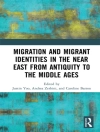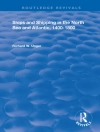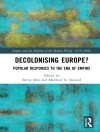This book offers an historical analysis of the culture of animal-dependent science in Britain from 1945 to the present, exploring key areas of animal experimentation such as warfare, medical science and law from a gendered perspective. Questioning the nature of knowledge production in this area, and how animal experimentation intersects with broader cultural norms and values concerning sex, and gender, it examines the impact of contemporary forms of capitalism on animal dependen...
This book offers an historical analysis of the culture of animal-dependent science in Britain from 1945 to the present, exploring key areas of animal experimentation such as warfare, medical science and law from a gendered perspective. Questioning the nature of knowledge production in this area, and how animal experimentation intersects with broader cultural norms and values concerning sex, and gender, it examines the impact of contemporary forms of capitalism on animal dependent science, its historical trajectory and gendered configuration. With close attention to the broad social context from the creation of the Welfare State and the loss of Empire, to the emergence of neoliberalism in the 1980s and its present day omnipotent manifestation, the author asks how animal experimentation and the use of nonhuman animals in specific areas of science is gendered and has implications for women. Drawing on a variety of sociological, philosophical, feminist and historical theories and engaging with a wealth of primary and secondary materials of scientific research of the time, Science, Gender and the Exploitation of Animals in Britain Since 1945 contends that there is a persistent, gendered ideology of animal use which remains inscribed within the policies of the British neoliberal state. As such, it will appeal to scholars of sociology, history and philosophy with interests in gender and the treatment of nonhuman animals.












